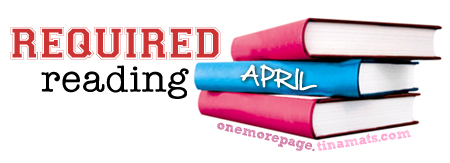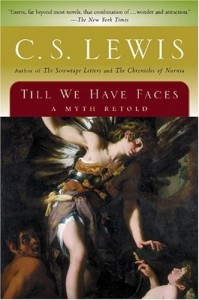 The Screwtape Letters by C.S. Lewis
The Screwtape Letters by C.S. Lewis
Publisher: HarperCollins
Number of pages: 176
My copy: ebook, bought from Amazon Kindle Store
The story takes the form of a series of letters from a senior demon, Screwtape, to his nephew, a junior “tempter” named Wormwood, so as to advise him on methods of securing the damnation of a British man, known only as “the Patient”.
Screwtape holds an administrative post in the bureaucracy (“Lowerarchy”) of Hell, and acts as a mentor to Wormwood, the inexperienced tempter. In the body of the thirty-one letters which make up the book, Screwtape gives Wormwood detailed advice on various methods of undermining faith and promoting sin in the Patient, interspersed with observations on human nature and Christian doctrine. Wormwood and Screwtape live in a peculiarly morally reversed world, where individual benefit and greed are seen as the greatest good, and neither demon is capable of comprehending or acknowledging true human virtue when he sees it.
* * *
Ah Screwtape. I’ve heard so much about this book but I never got to buy it because the print copy was just too expensive for something so thin. I remember splurging on the ebook instead a couple of months ago, but true to form, it took me a while to read this. I know a Lewis book is never easy reading. What better time to read this one than during the Lenten season, right?
The Screwtape Letters is an epistolary novella that contains the letters of a demon Screwtape to his nephew Wormwood with detailed advice on how to lead his assignment, a man only named as “the patient” to sin and eventual eternal damnation. In these letters, Screwtape tells Wormwood of particular human weaknesses and how they can exploit it, of religious weaknesses and how to make it their patient’s downfall, of how they’re just not in it for general mischief but snatching human souls from their Enemy.
I was discussing this book with a friend a few days before I finished reading it, and he told me that while he liked the book, he didn’t have the heart to review it because it struck too many familiar chords. I could say the same for me, too. The Screwtape Letters is almost humorous in some ways, especially whenever Screwtape would scold Wormwood for messing up, but it’s more chilling in more ways than it is humorous. Screwtape outlined ways on how Wormwood could lead his patient to eternal damnation, and the ways he listed were a little too familiar that it borders on being uncomfortable. I admit that it really made me think of the times when I fell for the same things — the feeling of “owning” my time that I get mad at any interruption, or worrying too much about tomorrow instead of focusing on today, self-righteous thinking. This book poked a little too much at the parts of my heart that I try to not look at, and helped me see myself for all the ugliness with all the sin that I’ve fallen into. I remember cringing as I highlighted the parts of the book that struck me the most, like these:
It is funny how mortals always picture us as putting things into their minds; in reality our best work is done by keeping things out. (p. 16)
There is nothing like suspense and anxiety for barricading a human’s mind against the Enemy. He wants men to be concerned with what they do; our business is to keep them thinking about what will happen to them. (p. 25)
It does not matter how small the sins are provided that their cumulative effect is to edge the man away from the Light and out into Nothing. Murder is no better than cards if cards can do the trick. Indeed the safest road to Hell is the gradual one — the gentle slope, soft underfoot, without sudden turnings, without milestones, without signposts. (p. 60)
Now you will notice that nothing throws him into a passion so easily as to find a tract of time which he reckoned on having at his own disposal unexpectedly taken from him…They anger him because he regards his time as his and feels that it is being stolen. (p. 112)
It’s not that this book is not without hope — in fact, it ends quite hopefully. But seeing it in the eyes of the “protagonists” it doesn’t feel like it. This book is not really for fast reading — each letter is meant to be read slowly and reflected on, maybe even discussed with other people of faith. Like other Lewis books, I think The Screwtape Letters is one for re-reading, because I’m sure different passages would hit people depending on what is the state of their life when they read this.
Of course, this is still considered as fiction, but like all other Lewis books I’ve read, it’s one that made me think. I can’t help but remember Ephesians 6:12 as I read this book: “For our struggle is not against flesh and blood, but against the rulers, against the authorities, against the powers of this dark world and against the spiritual forces of evil in the heavenly realms.” The Screwtape Letters is a book that definitely needs to be read more than once.
Rating: [rating=4]
2011 Challenge Status:
Required Reading – April
Other reviews:
Goodreads reviews
Brothers Judd
Jonathan Enns

 The month of April usually means two things for me: the start of summer and Holy Week. Last year’s Holy Week barely touched April, but this year, Holy Week is right smack in the middle of the month. I usually go offline during that week and pick a slightly difficult book to read because not being online means I have more time to tackle a hard-to-read book.
The month of April usually means two things for me: the start of summer and Holy Week. Last year’s Holy Week barely touched April, but this year, Holy Week is right smack in the middle of the month. I usually go offline during that week and pick a slightly difficult book to read because not being online means I have more time to tackle a hard-to-read book.


